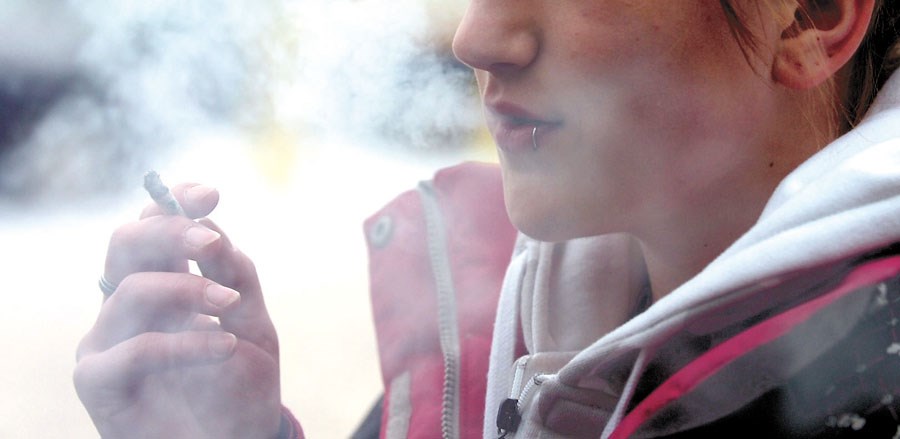A proposed city bylaw has the potential to push smokers further and further from public spaces.
During Monday night's meeting, city council approved draft legislation aimed at banning all forms of smoking and use of vaporizers (such as electronic cigarettes, pipes or hookahs) from bus shelters, outdoor sports facilities, vehicles for hire, city-owned or leased facilities, parks and opens spaces and customer service areas, including bar and restaurant patios.
The proposed bylaw would also ban smoking and vaping within nine metres of enclosed or partially enclosed transit shelters, signs or sign posts indicating where people wait for vehicles for hire or buses, and any building's door, windows or air intake. Smoking within 25 metres of any outdoor sport facility or playground would also be prohibited.
Any proposed bans would not apply to incense or other smoking equipment used for ceremonial or religious purposes.
The province already regulates smoking and other tobacco use, but municipalities can add their own rules. Currently, the city's 65 playgrounds and the skateboard park are designated as tobacco-free zones, but there is no official bylaw to back that up.
The nine-metre stipulation is "basically triple what the provincial legislation is right now," said bylaw services manager Fred Crittenden.
There's science behind that nine-metre selection, said social planning manager Chris Bone.
"Many people ask 'where did you come up with a nine-metre buffer zone?' It comes from research that shows smoke doesn't dissipate for at least nine metres," said Bone. "And so the intent of that placement in the bylaw is to protect non-smokers from the harmful effects of that secondhand smoke."
While on board with the harm-reduction aspect, Coun. Terri McConnachie expressed concern that the new rules could be seen as overbearing.
"I do prefer the more proactive approach of getting people to realize that if they don't smoke they smell better, they feel better, they have more money and all those different kinds of things," McConnachie said. "But to go to a more punitive approach that goes way above and beyond, I don't know, it just seems very 1984 to me."
A consultation process on the proposed bylaw begins Sept. 15 and will last two months. The bylaw will return to council by mid December with any revisions.
One major focus of the engagement period is to identify all the major businesses and venue operators who would be affected by the changes.
Based on other communities that have implemented their own anti-smoking bylaws, there isn't much extra strain placed on bylaw enforcement staff, said Crittenden.
Currently there are five bylaw enforcement officers at the city, who mainly work weekday shifts.
"As long as we have a good communications plan, a good education plan, they kind of take care of themselves and the community polices themselves," Crittenden said.



